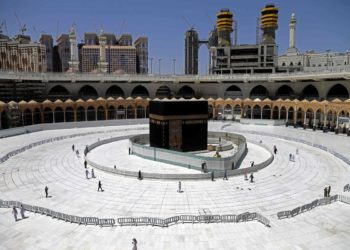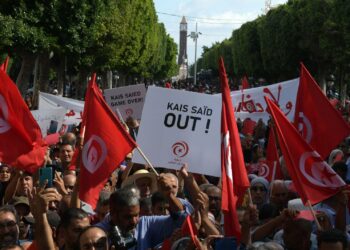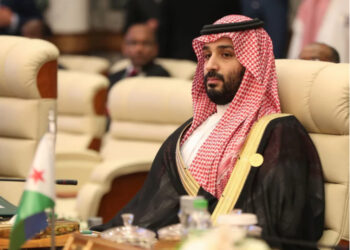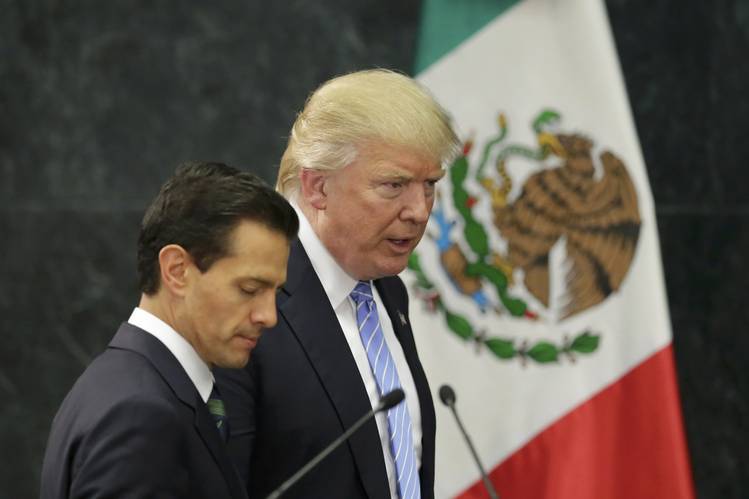The Saudi spearheading of a coalition to form an Arab NATO along with the sudden change of Saudi Arabia’s line of succession suggest that the Qatari diplomatic crisis is more complicated than it looks. If for Washington the goal of creating a unified Sunni coalition of countries, a.k.a Arab NATO, was basically to deter Iran, for Saudi Arabia there seems to be more in the works.
The Saudi-led blockade on Qatar remains dubious at best when Saudi Arabia calls on Qatar to halt supporting fundamentalist groups in the Middle East. Given Saudi Arabia’s support of a range of like-minded Jihadi groups across the world, the kingdom’s propelling of a barrage of criticisms of Qatar on the pretext of concerns about the expansion of extremism hardly holds true.
The Saudi claim actually falls flat on two grounds. First, there have been several independent investigations indicating Saudis’ direct involvement in supporting extremist groups, not to mention serious allegations made by other states. To name but one example, less than a year ago, the ’28 pages’ of the U.S. congressional inquiry into September 11 terror attacks was declassified revealing potential Saudi ties to the 9/11 hijackers.
Second, Qatar has presented itself as a reliable strategic ally of the U.S.-led coalition by hosting the U.S.-led Combined Air Operation Center (CAOC) for fighting ISIS and other groups in Iraq, Syria, and Afghanistan. The Saudi diplomatic war with Qatar is, therefore, most likely a harsh response to the Qataris’ disinclination towards Saudis’ regional policies, particularly with regards to Iran.
Considering Saudis’ unfulfilled goals in the Syrian and Yemeni theater, and the kingdom’s discontent with Iran’s nuclear deal, it is fair to assume that with the beginning of the presidency of Donald Trump in the U.S., opportunity knocked for Saudi Arabia. Trump’s pledge to tear up Iran’s deal during his presidential campaign and his choice of foreign policy team created hopes for Saudi Arabia to frame a more aggressive policy against Iran.
The U.S. support of an Arab NATO in addition to an arms deal worth of $350 billion reassured Saudi Arabia that previous disagreements with Obama administration regarding supporting Syrian rebels and Iran nuclear deal were no longer an issue in the way of consolidating U.S.-Saudi partnership. Thus, the new rapprochement under the Trump administration significantly bolstered Saudis beyond the stated goals of the U.S. president’s visit to the kingdom.
The Saudi-Iranian power rivalry has consisted of a range of hostile behavior and unfriendly gestures at times. On the part of Saudis, their anti-Iranian policy has been pursued on two fronts.
There have been multiple occasions where Saudi officials have exhorted the U.S. to launch military strikes on Iran. The late Saudi King Abdullah’s famous “cut off the head of the snake” comment made in his 2008 meeting with General David Petraeus, the top U.S. military commander in the Middle East, is only one of such efforts.
Following Saudis’ frequent exhortation to the U.S. to attack Iran, the former U.S. Secretary of Defense, Robert Gates, stated that “the Saudis always want to fight the Iranians to the last American.” Yet the Saudis’ anti-Iran policy did not find favor with Mr. Obama as his administration preferred diplomatic engagement over military force and cautioned against U.S. involvement in proxy wars fueled by Saudi-Iranian confrontation.
Now that President Trump has discarded Mr. Obama’s Iran policy of engagement, Saudi Arabia wants to seize the opportunity. To reinforce their confrontational approach against Iran, Saudi King removed the Crown Prince Mohammed bin Nayef, whose father was relatively on good terms with Iran via the late Iranian influential policy-maker, Hashemi Rafsanjani.
The newly appointed Crown Prince, Mohammad bin Salman, is known for his strong anti-Iran positions. He has led the Saudi war against Iranian–backed Huthis in Yemen. Shortly after the U.S. presidential elections, Crown Prince Salman visited Mr. Trump, discussed the creation of a NATO-like security architecture for Arabs states and invited the U.S. president to visit Saudi Arabia. In an interview, he ruled out any chance of dialogue with Iran and “vowed to take the battle to Iran.”
Yet Saudis are aware that their muscle flexing towards the Shiite Iran needs to be also solidified by further support from other states on a sub-regional level. To rally support for an anti-Iran policy, Saudis have been mostly focusing on the Sunni/Arab states of the Persian Gulf since 1979 Iranian revolution. By aggrandizing the alleged threat Sunni Muslim countries face from Iran, Saudi Arabia has constantly engaged in precipitating the formation of an anti-Iran bloc.
They continued to promote pan-Arabism and not only bankrolled Iraqi war efforts against Iran (1980-88), but also supported anti-Iranian terrorist organizations such as MEK and Jundallah which were based in Iraq and Pakistan. As such, Saudi Arabia has been actively seeking to influence Arab and Muslim member states of important regional organizations such as Organization of Islamic Cooperation (OIC), the Arab League, and the Gulf Cooperation Council (GCC) to ostracize Iran.
Yet the Saudis’ considerable efforts to get the member states of these organizations climb aboard the bandwagon against Iran have mostly led to general condemnation statements without any specific measures. For example, in 2008, only UAE and Egypt joined Saudi Arabia to call Iran an ‘existential threat’.
The current Saudi push for antagonizing Iran has received varied responses, too. Among the small states of the Persian Gulf, Qatar has every reason not to side with Saudis against Iran.
To Saudis’ dismay, Qatar, as the largest exporter of liquefied natural gas, has strengthened its ties with Iran, the country with which it is sharing vast natural gas resources. Based on the kingdom’s authoritarian behavior, any act of defiance that discounts the Saudis’ anti-Iran policy would have consequences. As such, the Saudi-led blockade on Qatar appears to be a payback.
Yet, given Turkey and Iran backing Qatar and the U.S. pressing to resolve the crisis through negotiations, the question is how far Saudis could go to coerce Doha to embrace Riyadh’s regional agenda?





















